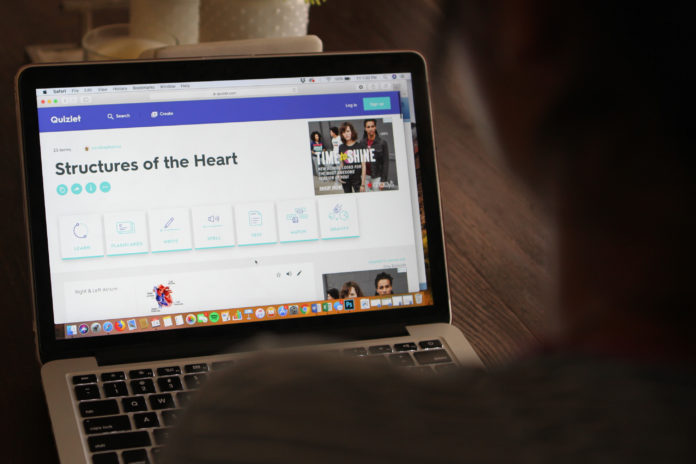
By Lizzie Thomas | Staff Writer
Students are no longer allowed to use websites like Quizlet or Chegg unless the professor gives written permission.
The Provost’s Office sent an email announcement Tuesday about revisions to the Honor Code regarding the use of online study tools to Baylor students.
The Office of Academic Integrity said the reasoning behind the revision is that if students can post a guide or set of flashcards online for others to access, then they can post the answers to a professor’s test. Essentially, that would be doing what has been prohibited for a while — getting the answers to a test that someone else has already taken.
Dr. Elizabeth Burnett-Henderson, temporary lecturer in French, expressed the occasional conundrum professors have when trying to give all students a fair chance at a good grade.
“I think students need to have as many tools at their disposal to learn a language,” Burnett-Henderson said. “But at no point should a student be specifically putting up test material for another class for another single student to have an advantage. That’s part of a professor’s responsibility to make sure that tests remain confidential. If you can somehow get all the students to take the test at the same time … There are cases where it’s just unavoidable.”
Linda Cates, director of the Office of Academic Integrity, said this addition to the Honor Code gives professors the authority to make specific determinations about what would and wouldn’t be an unfair advantage, even on specific assignments.
Quizlet and Chegg are not the only sites that students should be wary of using to comply with the Honor Code. New sites appear all the time, and students should ask their professors prior to using one of these sites if they aren’t sure whether it’s allowed to be sure where the line is drawn, according to Cates.
“The most common site is probably Quizlet,” Cates said. “Others we have seen in actual Honor Code violation cases involve Course Hero, Chegg and ones containing Solution Manuals for certain courses.”
The revisions to the Honor Code may cause some professors to be wary to grant permission to use the online study tools in question, but Burnett-Henderson wants to trust students to act honorably. She thinks there are responsible ways to use online study tools, but students should know what the limits of those resources are.
When asked if she would still grant permission to use these sites, given that the Honor Council has decided they can be used dishonorably, Henderson said, “I would encourage students to use any materials at their disposal as long as it’s their own. I wouldn’t prohibit someone from using a site. I don’t think that’s what our education should even value. I think students who are pursuing their own education need to be allowed to access any site that would give them access to any answers they seek in a responsible way.”
The Honor Council has determined that conduct on these sites has been dishonorable before, but now the revision makes it clear that the dishonorable conduct is not relegated to speech or physical writing.
“In most of these types of cases that have come before the Honor Council, the Council determined that the incidents met the definition of dishonorable conduct under the Honor Code. The changes to the Honor Code have been designed to give more clarification about this issue,” Cates said.





